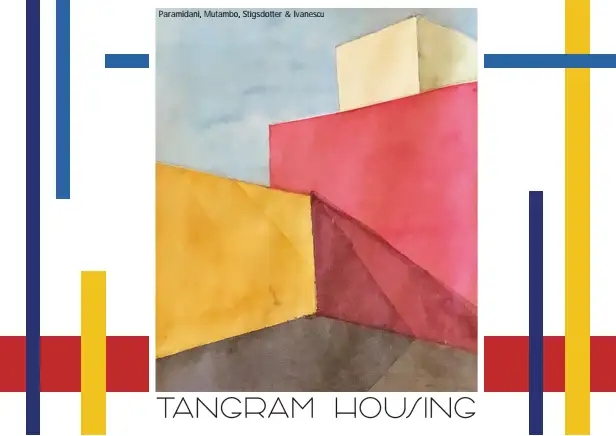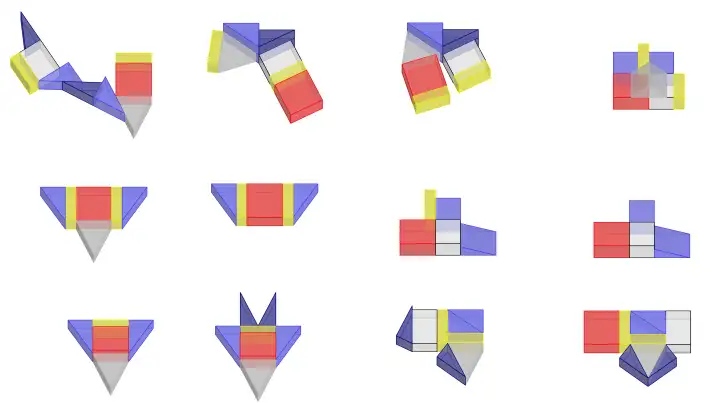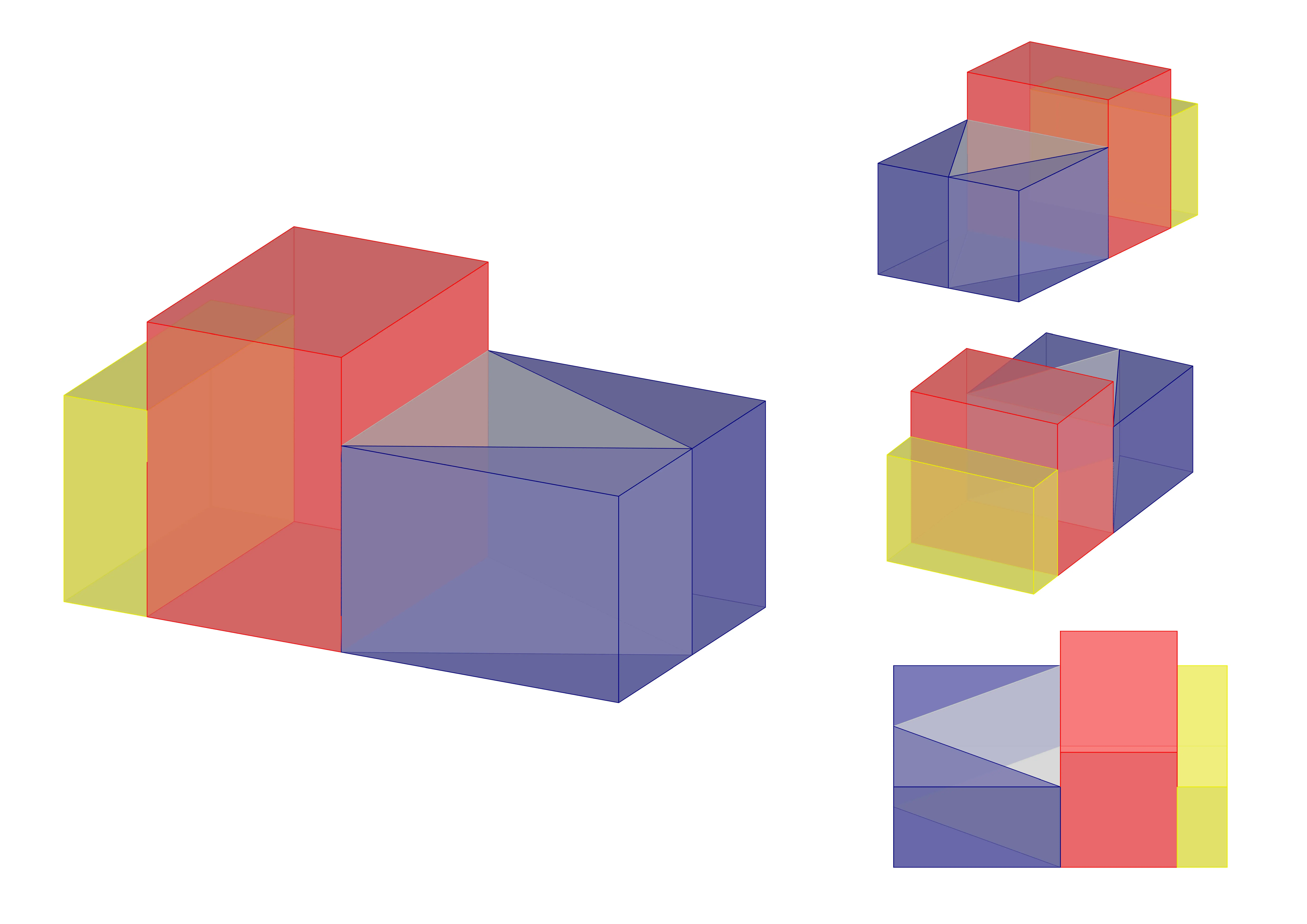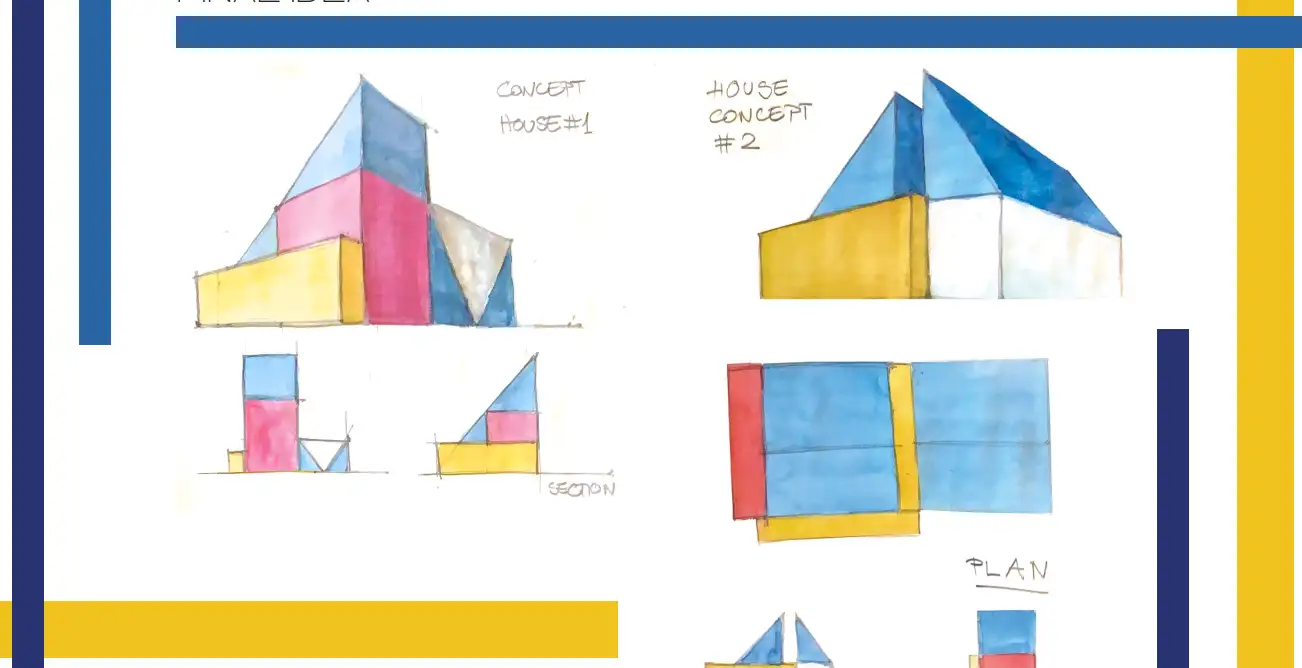Bauhaus
Contemporary Art
Universidad Europea
Madrid
Spring 2023
March - April
Made by
Jonna Stigsdotter

My understanding of Bauhaus
Bauhaus was a German art school founded in 1919 by Walter Gropius. It emphasized the importance of functionalism, modern technology, and quality craftsmanship. Bauhaus style sought to combine art and industry through form following function, using simple geometric shapes and primary colors. It emphasized the importance of functionalism, modern technology, and quality craftsmanship. This style became popular in design, architecture, and art, influencing everything from furniture to typography.
Bauhaus and Tangram
The philosophy behind these art forms was to simplify the design and focus on function and efficiency. Both forms used geometric shapes and precise measurements to create a harmonious composition, making shapes as simple as possible without sacrificing aesthetics.


Tangram houses
Bauhaus and Tangram played a massive role in modern art and design development, and their influence can still be seen in contemporary design practices. Both art movements share a common goal of simplicity, which is why they complement each other and inspire new forms of art that carry on their legacy
Concept
Customisation: Customers can ensure their house is
built according to their needs and preferences,
making it a unique and personalised space.
Control: Being involved in the design process
ensures that the customer can oversee all aspects of
the project and make informed decisions about the
design and construction
Satisfaction: Being part of the design process ensures
that customers are satisfied with the end product, as
they have input into how their house looks and feels.
Sense of ownership: Customers involved in the
design process feel a sense of ownership over the final
product, making them more invested in the house
and more likely to take care of it
Future-proofing: Customers can identify potential
future needs and design their houses accordingly,
meaning they won't have to make expensive changes
later.
SUSTAINABILITY & MODERN TECHNOLOGY
Our main objective was to come up with a design that is creative yet cost and labor effective. With the contributions of the client designs we are able to come up with a vast number yet easily be constructed by 3D printing
